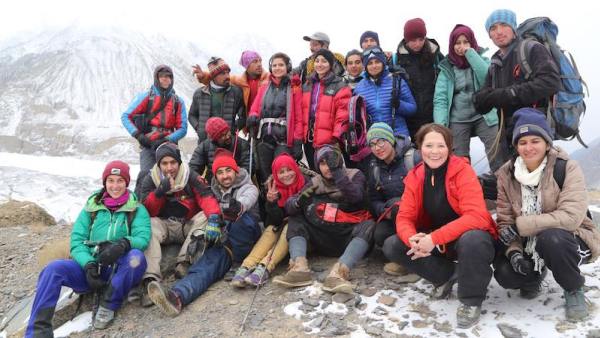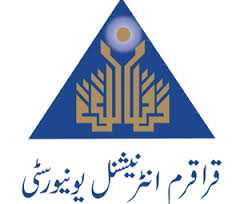DISCORD IN PAKISTAN’S NORTHERN AREAS
EXECUTIVE SUMMARY
Almost six decades after Pakistan’s independence, the constitutional status of the Federally Administered Northern Areas (Gilgit and Baltistan), once a part of the former princely state of Jammu and Kashmir and now under Pakistani control, remains undetermined, with political autonomy a distant dream. The region’s inhabitants are embittered by Islamabad’s unwillingness to devolve power to its elected representatives, and a nationalist movement, which seeks independence, is gaining ground.
The rise of sectarian extremism is an alarming consequence of this denial of basic political rights. Taking advantage of the weaknesses in the imposed dispensation, religious organisations espousing a narrow sectarian agenda are fanning the fires of sectarian hatred in a region where Sunnis, Shias and Ismailis have peacefully coexisted for several centuries.
Prior to Pakistan’s independence, the Northern Areas were part of the princely state of Jammu and Kashmir and a key component of Imperial India’s strategic northern frontier. In 1947, the region successfully rebelled against the Maharaja of Kashmir and supported full integration into Pakistan. Almost 60 years later, Pakistan’s military, the arbiter of its Kashmir policy, insists that the Northern Areas remain part of the disputed state of Jammu and Kashmir and that any delineation of the region’s constitutional status will have to wait for a solution of the Kashmir dispute. As a result, the Northern Areas are not included in the Pakistan constitution and, unlike the Federally Administered Tribal Areas (FATA), are not represented in the parliament. The region has been left in a constitutional limbo.
Like the Northern Areas, Azad Jammu and Kashmir (AJK), the other part of the former princely state under Pakistan’s control, is also considered disputed territory. Yet, Islamabad has granted AJK at least nominal autonomy, including its own constitution. In stark contrast, it administers the Northern Areas under the Legal Framework Order (LFO) of 1994, an administrative instrument used to strengthen its hold over the region while denying its residents basic political and civil rights. Many locals believe sectarian bias is behind the decision to maintain widely different political arrangements to the Northern Areas and AJK. Unlike AJK, which, like Pakistan, has an overwhelming Sunni majority, the Northern Areas are the only Shia-majority region under Pakistani control.
Violating a landmark verdict by the Pakistan Supreme Court in 1999, which directed Islamabad to extend, within six months, fundamental freedoms to the Northern Areas, allowing its people to be governed by their elected representatives, the region is still ruled by executive fiat from Islamabad through the federal ministry for Kashmir Affairs and Northern Areas (KANA), whose minister is its unelected chief executive. The Northern Areas Legislative Council (NALC), the region’s elected legislature, is powerless, and civil and military bureaucrats run affairs. By depriving elected institutions of even a modicum of authority and marginalising moderate political forces, Islamabad has empowered sectarian groups and allowed them to secure a firm foothold in the region.
The military’s patronage of Sunni jihadis has also promoted sectarian strife in the Northern Areas, first witnessed during General Zia-ul-Haq’s rule (1977-1988), when the state empowered Sunni Islamists at the cost of the Shia minority. Since then, violent sectarian clashes have frequently occurred in the Northern Areas. Under President and Army Chief Pervez Musharraf, the military has retained its alliance with Sunni Islamists for multiple goals, domestic and external, further weakening moderate forces in a region where religious extremism was once unknown. Nor has the military government taken any meaningful steps to address the wider issues of constitutional neglect and political disempowerment in the Northern Areas.
With the denial of political space and basic rights under Musharraf’s military government, discontent in the Northern Areas is on the rise, and the political vacuum is being exploited by extremist groups to promote their sectarian goals. Implementing the recommendations of Pakistan’s Supreme Court and extending basic rights and political freedoms to the Northern Areas could restore some of the goodwill frittered away by long mismanagement. For that to happen, however, Pakistan itself must have a democratic dispensation. Democratically-elected governments in Islamabad have initiated whatever political development has taken place in the Northern Areas. At least until there is again such a government, Islamabad will resist devolving any meaningful power to a region that is perceived as a bargaining chip in its rivalry with India over Kashmir.
Islamabad/Brussels, 2 April 2007
click here to download
Prior to Pakistan’s independence, the Northern Areas were part of the princely state of Jammu and Kashmir and a key component of Imperial India’s strategic northern frontier. In 1947, the region successfully rebelled against the Maharaja of Kashmir and supported full integration into Pakistan. Almost 60 years later, Pakistan’s military, the arbiter of its Kashmir policy, insists that the Northern Areas remain part of the disputed state of Jammu and Kashmir and that any delineation of the region’s constitutional status will have to wait for a solution of the Kashmir dispute. As a result, the Northern Areas are not included in the Pakistan constitution and, unlike the Federally Administered Tribal Areas (FATA), are not represented in the parliament. The region has been left in a constitutional limbo.
Like the Northern Areas, Azad Jammu and Kashmir (AJK), the other part of the former princely state under Pakistan’s control, is also considered disputed territory. Yet, Islamabad has granted AJK at least nominal autonomy, including its own constitution. In stark contrast, it administers the Northern Areas under the Legal Framework Order (LFO) of 1994, an administrative instrument used to strengthen its hold over the region while denying its residents basic political and civil rights. Many locals believe sectarian bias is behind the decision to maintain widely different political arrangements to the Northern Areas and AJK. Unlike AJK, which, like Pakistan, has an overwhelming Sunni majority, the Northern Areas are the only Shia-majority region under Pakistani control.
Violating a landmark verdict by the Pakistan Supreme Court in 1999, which directed Islamabad to extend, within six months, fundamental freedoms to the Northern Areas, allowing its people to be governed by their elected representatives, the region is still ruled by executive fiat from Islamabad through the federal ministry for Kashmir Affairs and Northern Areas (KANA), whose minister is its unelected chief executive. The Northern Areas Legislative Council (NALC), the region’s elected legislature, is powerless, and civil and military bureaucrats run affairs. By depriving elected institutions of even a modicum of authority and marginalising moderate political forces, Islamabad has empowered sectarian groups and allowed them to secure a firm foothold in the region.
The military’s patronage of Sunni jihadis has also promoted sectarian strife in the Northern Areas, first witnessed during General Zia-ul-Haq’s rule (1977-1988), when the state empowered Sunni Islamists at the cost of the Shia minority. Since then, violent sectarian clashes have frequently occurred in the Northern Areas. Under President and Army Chief Pervez Musharraf, the military has retained its alliance with Sunni Islamists for multiple goals, domestic and external, further weakening moderate forces in a region where religious extremism was once unknown. Nor has the military government taken any meaningful steps to address the wider issues of constitutional neglect and political disempowerment in the Northern Areas.
With the denial of political space and basic rights under Musharraf’s military government, discontent in the Northern Areas is on the rise, and the political vacuum is being exploited by extremist groups to promote their sectarian goals. Implementing the recommendations of Pakistan’s Supreme Court and extending basic rights and political freedoms to the Northern Areas could restore some of the goodwill frittered away by long mismanagement. For that to happen, however, Pakistan itself must have a democratic dispensation. Democratically-elected governments in Islamabad have initiated whatever political development has taken place in the Northern Areas. At least until there is again such a government, Islamabad will resist devolving any meaningful power to a region that is perceived as a bargaining chip in its rivalry with India over Kashmir.
Islamabad/Brussels, 2 April 2007
click here to download








0 Comments